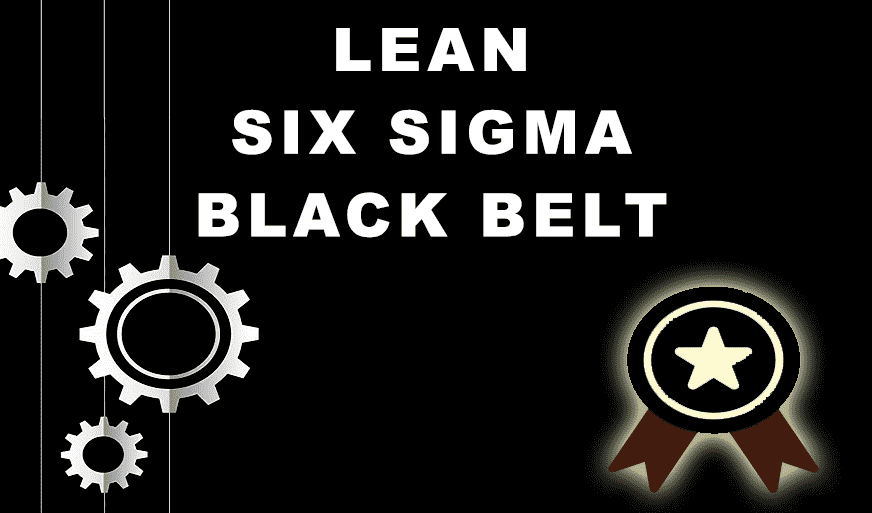Benefits of QMS Certification for Your Business
-
 By Sushmith
By Sushmith - Published on Jul 1 2024

Table of Contents
How does QMS Certifications Impact Your Business?
Businesses today are constantly striving to differentiate themselves to stay authentic and competitive. Customers are demanding exceptional quality, consistent service, and a commitment to responsible practices for every business. Guaranteeing consistent quality is no longer a luxury; it's a mandate for every business. This is where QMS certification comes in. Key credentials like ISO Quality standards, serve as a key tool that helps businesses elevate their business performance and highlight a commitment to quality, offering greater success in return.
Understanding the Power of QMS Certifications
A Quality Management System (QMS) certification is a formal form of acknowledgment depicting that a business follows international standards of quality like the ISO quality standards. These certifications signify that business operations are robust in managing quality with the latest implementations of the latest frameworks across all operations, with numerous benefits.

Businesses that follow these quality standards not only streamline operations but also leverage the advantages of reduced errors and improved overall efficiency. For businesses of all sizes, QMS certification becomes the primary priority that helps in displaying the commitment to quality service. These certifications benchmark performance against industry best practices. These certifications do not only help you maintain quality but also identifies areas for improvement, keeping you ahead of the competition.
Key ISO QMS Certifications: Unlocking Industry
The International Organization for Standardization (ISO) offers a wide collection of certifications, each tailored to a specific industry. Let us now discuss the most leading ISO certifications that power industrial quality management:
ISO 9001:
The ISO 9001 certification is one of the widely recognized standards that focuses on the core principles of quality management for continuous improvement and is applicable to businesses of all sizes and industries. The key principles of this certification include factors like customer focus and engagement, process approach, improvement in decision-making, relationship management, and more. Earning this certification offers a boost in efficiency and customer satisfaction.
ISO 13485:
The ISO 13485 certification is specifically designed to focus on the medical device industry to ensure a thorough medical devices quality and safety check. This certification highlights the production and maintenance requirements for a QMS that consistently meets customer and regulatory requirements for medical devices. This certification is earned to ensure the production of safe and effective medical products that align patients’ safety with regulatory compliance.
ISO 14001:
For businesses committed to environmental responsibility, the ISO 14001 certification provides a framework for establishing an environmental management system. This helps businesses minimize their environmental impact and continually improve their environmental performance. The ISO 14001 certification benefits the environment widely and also aids in enhancing a company's market-standing, reduces waste, and can lead to cost savings through frameworks that offer efficient resource use.
AS9100:
The aerospace industry demands the highest quality standards. The AS9100 certification is the QMS standard for the aerospace industry that ensures that organizations in this sector meet these rigorous requirements. This certification helps aerospace companies in meeting regulatory safety requirements that improve product quality.
IATF 16949:
The IATF 16949 is the international quality standard developed focusing on the quality control in the automotive industry to guarantee quality management systems for automotive manufacturers and suppliers and the safety of vehicles. This certification helps meet customer and regulatory requirements and improve product quality and reliability.
Benefits of QMS Certification for Businesses
As discussed in the previous sections, businesses earning QMS certifications earn multiple industry-changing advantages. Let us now deeply discuss how these certifications impact business quality and growth.

Improved Efficiency and Productivity
ISO’s QMS certifications are the key to any business's ability to streamline business processes and eliminate errors. This enhances overall staff productivity with the reduction of repeated fixes. With this, the organizations result in much more efficient resource management.
Customer Satisfaction
Maintaining quality standards increases customer satisfaction by ensuring high-quality goods and services are continuously provided. Guaranteeing customer satisfaction offers a great possibility of them sticking with the company and referring others to it.
Market Opportunities
Certifications create new market opportunities for organizations and businesses that demonstrate compliance with global quality standards. In addition to increasing a company's market reach, this improves its reputation and attracts more potential partners and clients.
Risk Management
QMS certifications aid in the identification and mitigation of risks through the implementation of systematic risk assessment and management processes. This proactive strategy shields the company from possible losses by lowering the possibility of errors and non-compliance.

Compliance with Regulations
In order to stay out of trouble with the law and avoid penalties, compliance with regulations is essential. Regulatory bodies and consumers alike benefit from QMS certifications, which guarantee that companies follow pertinent laws and guidelines.
Other Blogs of This Blog Series:
For a much deeper understanding of the ISO quality standard certifications, check out our related blogs:
What Are Quality Standards? | A Guide To ISO Standards
7 Important Types Of Quality Management System
Conclusion
In conclusion, certifications in quality management systems are the key tools that all businesses and organizations can seek if they are looking to improve productivity. Not just to increase productivity, organizations also focus on earning these certifications to help step into new marketing competitions with structured business operations.
Businesses can accomplish anything if the investments of the resources are done in a planned structure. Pursuing relevant training that qualifies for earning this credential is the smartest and most strategic investment businesses can make to secure their future success. At Sprintzeal, we offer a collection of certification trainings and courses catering to all industrial needs and advancements.
Visit our all-course page to explore all available certification trainings we offer and boost your business operations with the implementation of top-notch frameworks and principles, successfully achieving your business goals and objectives.
Our newsletter is free! Subscribe and stay updated with the latest insights and get early access to exclusive training discounts!
Subscribe to our Newsletters
Popular Programs
Trending Posts
Who Needs ISO 9001 Certification and Why?
Last updated on Aug 29 2024
The Lean Continuous Improvement Model: A Comprehensive Guide
Last updated on Nov 7 2023
Compliance Manager Interview Questions and Answers 2024
Last updated on Nov 3 2023
Best Six Sigma Books in 2024
Last updated on Apr 26 2023
The Ultimate Guide to ISO 9001: Boosting Quality and Certification Success
Last updated on Jul 24 2024
Six Sigma Interview Questions and Answers 2024
Last updated on Nov 10 2023
Categories
- Agile Management 54
- AI and Machine Learning 42
- Big Data 53
- Business Management 51
- Cloud Computing 44
- Digital Marketing 56
- Information Security 8
- IT Hardware and Networking 17
- IT Security 103
- IT Service Management 29
- Leadership and Management 1
- Microsoft Program 2
- Other 43
- Programming Language 31
- Project Management 162
- Quality Management 75
- Risk Management 8
- Workplace Skill Building 2
Trending Now
Top Career benefits of Lean Six Sigma Green Belt
ArticleLean methodology, Six Sigma methodology and Lean Six Sigma Explained
ArticleSix Sigma Black Belt Certification – Value and Career Benefits in 2024
ArticlePareto Chart in Six Sigma - Explained
ArticleQuality Management Interview Questions 2024
ArticleSix Sigma Certification Guide - A Professional's Guide
ArticleSix Sigma Yellow Belt Certification - Six Sigma for Beginners
ArticleQuality Control Explained – Six Sigma
ArticleTotal Quality Management - A Complete Guide for Beginners
ArticleQuality Assurance in Six Sigma Explained
ArticleQuality Assurance vs Quality Control
ArticleSix Sigma Certification – Everything you Need to Know About Getting Certified
ArticleLean Six Sigma on Resume for Rewarding Career Benefits
ArticleQuality Manager Interview Questions and Answers for 2025
ebookService Delivery Manager Interview Questions and Answers (With Examples)
ArticleSix Sigma Interview Questions and Answers 2024
ArticleHow to become a Quality Analyst
ArticleA Supply Chain Management Guide to Mastering Logistics End to End
ArticleSenior Quality Manager Interview Questions and Answers 2024
ArticleTop 30 Quality Analyst Interview Questions and Answers 2025
ArticleFinancial Analyst Interview Questions and Answers 2024
ArticleRisk Manager Interview Questions and Answers 2024
ArticleCompliance Manager Interview Questions and Answers 2024
ArticleOperation Manager Interview Questions and Answers
Article5 Lean Continuous Improvement Principles to Supercharge Your Operations
ArticleHow to Become a Quality Manager - Career, Job Scope and Certifications
ArticleEssential Components of a Quality Management System
ArticleSix Sigma Certifications - Reasons Why you Should Get Them
ArticleTop Qualities of a Good Manager and a Leader
ArticleLearn about Statistical Process Control (SPC) and its top applications
ArticleCost of Poor Quality - A Detailed Guide
ArticleImplementing 5S Methodology for Better Work Efficiency
ArticleWhat Is Lean Management?
ArticleBest Six Sigma Books in 2024
ArticleLeadership vs Management - The Ultimate Guide
ArticleQuality Assurance Plan - Six Steps To Quality Assurance Plan
ArticleOperational Planning Creation, Key Elements and its Benefits
ArticleA Complete Guide to Product Life Cycle Stages 2025
ArticleSix Sigma tools for DMAIC Phases
ArticleWhat Is Lean Manufacturing?- An Overview
ArticleThe Lean Continuous Improvement Model: A Comprehensive Guide
ArticleDMAIC vs. DMADV: Key Differences and Choosing the Right Six Sigma Methodology
ArticleA Deep Dive into the Power of Lean Continuous Improvement Process
ArticleLean Continuous Improvement Methods for Business Excellence
ArticleIntroduction to Lean Manufacturing- Definitions, Framework, and More
ArticleUnderstanding the Key Principles of Lean Manufacturing
ArticleSecret to Unlock Organizational Excellence: Stages of Continuous Improvement
ArticleLean Continuous Improvement: A Detailed Guide to Mastering Organizational Quality
ArticleLean Waste Management: The Ultimate Guide 2023
ArticleA Deep Dive into Lean Continuous Improvement Tools
Article8 Wastes of Lean - Strategies for Identification and Elimination
ArticleThe Ultimate Guide to Lean Manufacturing
ArticleUnderstanding Lean Manufacturing's Pros and Cons
ArticleLean Waste Reduction Strategies: Boost Efficiency and Cut Costs
ArticleTop 10 Lean Manufacturing Tools for Optimal Productivity
ArticleBeyond the Basics: Benefits of Lean Continuous Improvement
ArticleWhat are Quality Standards? | A Guide to ISO Standards
Article7 Important Types of Quality Management System
ArticleA Comprehensive Guide to Quality Management Systems
ArticleISO 9001 Standard: Benefits and Certification
ArticleStep-by-Step Implementation Guide to ISO 9001
ArticleThe Ultimate Guide to ISO 9001: Boosting Quality and Certification Success
ArticleQuality Management System – QSM Approaches and Methodologies
ArticleHow to Effectively Implement a Robust Quality Management System?
ArticleExplaining QMS Documentation Structure: Benefits and Best Practices
ArticleWho Needs ISO 9001 Certification and Why?
ArticleKey Elements of ISO 9001:2015 Quality Management System
ArticleOvercoming Common Challenges in ISO 9001 Certification: Tips and Best Practices
ArticleBest Quality Management Tools
ArticleTotal Quality Management (TQM) vs. Six Sigma
ArticleQuality Manager Salary: What Freshers & Experts Earn in 2025
ArticleCertified Scrum Product Owner: Job Roles And Responsibilities
ArticleTips for Continuous Integration Testing: Streamlining QA
Article10 Quality Management Strategies Adopted by Top Managers
Article

















